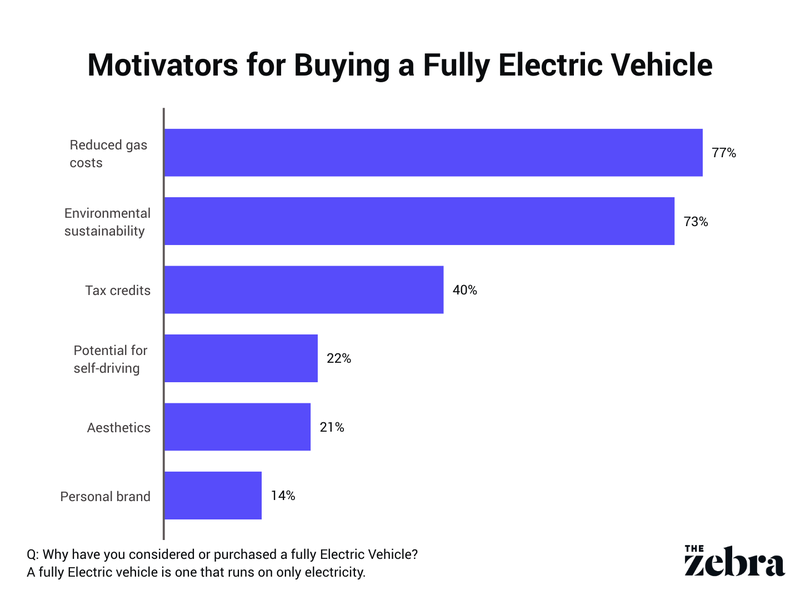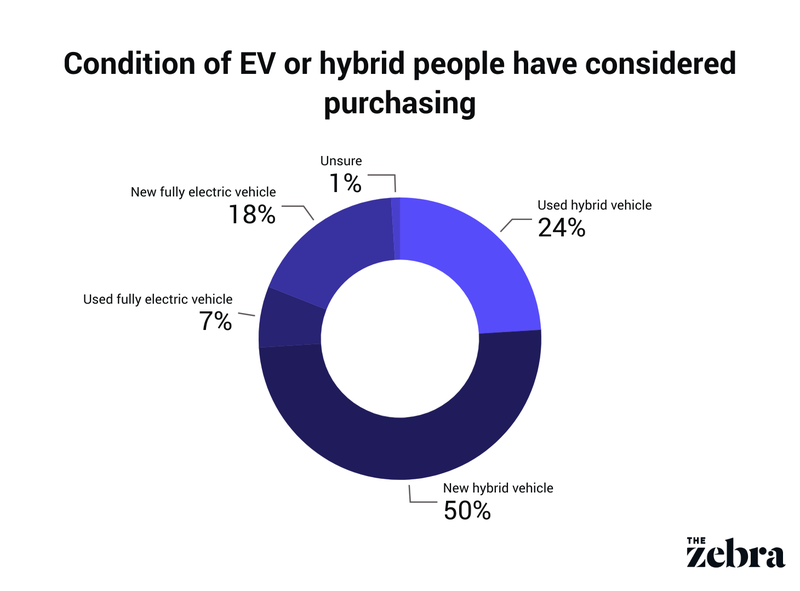1 in 5 people have considered purchasing a fully electric vehicle
Across the general population, nearly 60% of people have considered buying a hybrid or EV and nearly 20% of people have considered purchasing an EV. Reduced cost of gas and environmental sustainability were the primary motivators people cited. Other less popular motivators include government incentives, the potential of an autonomous vehicle, aesthetics and the enhancement of personal brand.

When we break this down by state, we see some differences. About 65% of people in Texas have not considered a hybrid nor fully electric vehicle, and about half of California residents have also not considered a fully electric vehicle. Why? Texans are one and a half times more likely than the general population to feel like EV technology is too new or that they lack understanding of it. California drivers are more dissuaded by the lack of charging capability at their residence.
Approaching the data by age, we found that the level of consideration for EVs increases as the age decreases. Around two out of three Boomers have not considered a hybrid or fully electric vehicle, while two out of three Gen Zers have considered one.
That’s looking at people who have considered purchasing an EV, but what about actually buying one? When it comes to people who have purchased hybrid or electric vehicles, only 19% of people have purchased a hybrid vehicle in their lifetime, and 6% have purchased a fully electric vehicle. About 75% of people have not ever purchased a hybrid or fully electric vehicle.





